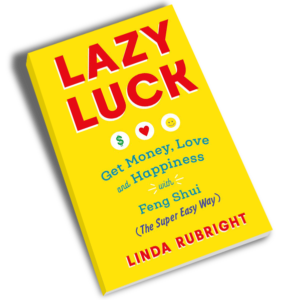The day Adam Baker and his wife, Courtney brought their daughter home from the hospital, they put her to bed, sat down at the kitchen table and decided something needed to change. No, they did not want what many, understandably, do when their family starts to grow – a bigger house, a better car and more gadgets.
They actually wanted the exact opposite.
They wanted less.
That night they committed to the antithesis of the America dream; they committed to wanting, needing and having less. They promised to get rid of their looming debt, sell all their stuff and travel the world – all with baby in tow. From this experience, Adam created Man Vs. Debt, a tremendously popular website outlining how he and his wife paid off their debt and how others can live a debt-free, non-consumerist lifestyle.
Four years later, Adam’s passion on how living less counter intuitively equates to living more transcended to the big screen – literally. Adam and his friend, Grant Peelle worked together to plan, film and produce I’m Fine, Thanks, a documentary about the epidemic of complacency that has unknowingly, yet insidiously, infected too many American lives.
In their movie they interviewed many of the people I admire and have chatted with regarding transcending complacency such as, Chris Guillebeau, Pamela Slim, Pat Flynn and others. They also profiled those who were in the process of beating complacency and some who were still very much stuck in it.
Here is a bit of what Adam had to say about his I’m Fine, Thanks, his ideas for those who feel stuck and his thoughts on the American Dream version 3.0.
What were the commonalities you found amongst the people you interviewed for I’m Fine, Thanks?
The people they had in their life had the most influence on what they did – either positively or negatively. A reoccurring commonality among almost everyone was they tried to live up to the expectation of their parents. Their relationship with their parents really affected them and with many, in a negative way because they were trying to live up to their parent’s ideals. Not that their parents were bad parents, they were just trying to live up to their parent’s expectations which were not necessarily their own desires.
Adam Baker, Producer of I’m Fine, Thanks and Founder of Man vs. Debt
A lot of people were also surrounding themselves with people who supported and participated in the complacent lifestyles and the big shift came when they started to change who they hung out with and their environment. When they started hanging out with people who were more aligned with where they wanted to go in life things started to change. That is the same for me in my life as well.
My life changed when I started changing the people I hung out with and the books I read and that seemed to be mimicked throughout the movie. If you surround yourself with people who are in debt, who subscribe to the status quo, who buy into society’s complacency, who seek status symbols – guess what you are going to do? It is not rocket science, but I was just surprised by how much it came up while we were making the movie.
What do you think is more of a hindrance in getting out of a complacent lifestyle; is it loads of debt or hanging out with the wrong people?
It is both, but I believe the people you surround yourself with play a more important role. With the right people and the right environment you can overcome the financial obstacles. You can change your lifestyle completely by changing the people and influences in your life. But you do have to start somewhere.
For me I started by lowering my overhead, getting rid of bad relationships, selling my stuff, paying down debt, saying no to projects that did not matter and focusing on things that did matter. Focusing your time and energy on things that really matter to you instead of just filling your time, schedule and capacity every second of every day is important. I think it is something our culture encourages which I continue to fight every day.
I grew up outside of Detroit in a family that was very much built on the American dream. My dad grew up with nothing, paid for college by being a cashier at a grocery store for eight years and went on to build two businesses.
What I see now is the American Dream has evolved, as you say, in I’m Fine, Thanks away from following your own path to blindly following that well laid track and plan.
Absolutely. That version of the American Dream for people like your dad was amazing. It was about coming from nothing and building a better opportunity for yourself and your family. What it evolved into in the 70s and 80s is having 2.2 kids, a 4000 square foot house and the dog in the front yard. The American Dream started to be about conforming and consumerism. It became about what we deserve right now, which is especially prevalent in our youth. We think we deserve the lifestyle of our parents right away and through credit cards and through other financing methods we are encouraged to participate in that behavior. The American Dream has turned into going to college, getting a job, climbing the corporate ladder and waiting for retirement. That never really was the full gist of the original American Dream.
That is very different from the prior version of the American Dream.
The original American Dream was about opportunity, but now it is about fitting into a mold. What we propose in I’m Fine, Thanks and what I have been working on for four or five years is there is a lot of opportunity when you own less stuff, when you can be more flexible and in being more clear about your passions and goals rather than trying to follow the script that we have all been sold.
Some people want the 4000 square foot house and 2.2 kids and the dog and that is their ideal life and that is what is right for them and that is perfect. But many people do not want that yet they still strive for it. It is all about finding out what the American Dream is for you.
What advice do you have for an 18 year old who is trying to decide what to do?
If I gave one prescription I would be committing the same sin we are trying to fight against. The answer to that question varies depending on the person. The script of course is to go to college. However if you do not know what you want to do you should not rush into college or debt. There are a lot of other options. There are a lot of volunteering options available, especially to youth. I know people who have participated in these volunteer programs and they say it is the most rewarding experience of their life.
There is also the option of traveling, which I think everyone should do. In Australia and New Zealand it is the norm to take a year and travel in between high school and college. I think there is a lot to be said for that option.
There are other ways of learning outside of college. You can intern with a company you like. In a lot of fields you can learn as much in six months of an internship as you could in four to six years of college. Most 18 year olds have no idea what they want to do with the rest of their lives and as such they should focus on building a diverse set of skills and experiences.
You don’t go to college, learn a skill and do it for 40 years anymore. Even people with a degree very often people do not work in that field. Don’t just go to college and be a business major because your dad wants you to be an accountant. Build diverse skills. Traveling is a perfect way to do that as are apprenticeships and internships, in addition to going to college.
What about the 38 year old that bought into Corporate America Inc. that is now miserable but has no idea what to do about it?
Most people in that situation have some sort of overhead. They have had a couple decades of working and bringing things in their life. If they do not have that overhead it is different, but many people have a house that is too big and a mortgage that is too big. They have a career that they have put a decade into. They have relationships and they may have kids. They probably have long term friendships.
My advice to them is to start lowering their overhead and I don’t mean just financial overhead. It starts with your bills, but it also includes getting rid of the wrong relationships and spending time on things that do not help you get where you want to go. What I find is when you remove those stresses and when you remove those things that keep you busy, busy, busy it gives you more flexibility and freedom to see other opportunities. Often times we have so much overhead and so much busyness in our lives that we have to keep chugging down that road. By removing those factors you can much more clearly see what is important to you in life.
What about the people who just want to up and quit their job?
For the 38 year old that has a lot of responsibility, it is not necessarily the best option to quit your job right away. Just because you like tennis does not mean you should quit your job and go play tennis. But if you love tennis and you love teaching kids, well now all of the sudden we are seeing how playing tennis can evolve into something that could be an alternative [career]. Teaching tennis on Saturday’s will help pay down debt and it will help you see if you really like teaching tennis or if it is just something you like to play occasionally.
It is just about exploring. We lose our exploration and our creativity because it is kind of beaten out of us. I have to continually remind myself that I need to explore and try new things.
Do you feel even with everything you have done and everything you do the Amercian Dream vortex can still get its tentacles in you?
Without question. It is a complete awareness game if you are going to live in the US. I traveled overseas for a year and I spent a lot of time in western countries and cultures. Coming back after being gone for over a year I felt it instantly, almost as soon as our passports were verified. We started thinking, “Maybe we should get a house? Maybe we should get a big house sopeople can come over?”
When we were traveling we never thought about it. It is hard to explain, but there is a pull to conform to the norm in the US. If that is what you want then great, but for many people it is not what they want and it is a constant struggle. There are a lot of good things about the US, but you have to be right on your toes or you will fall right back into it again.
How did you reacquire things after coming back from traveling?
It was awkward to buy a bed and a couch and some of the necessities. Sometimes we found ourselves stretching more than we should have but we remained pretty good. About six to nine months after returning we decided to go on a RV tour throughout the US which really helped. If you buy a big house you will fill it. If you keep yourself in a smaller house you will constrain yourself to only having so much stuff.
Your life will expand to the size you allow it to. When we first came back we rented a place in the Midwest and we had plenty of room. We noticed ourselves acquiring stuff. It all happened so quickly. We started with one car and then thought it would be more convenient to have two cars. We put parameters on our life and because of that it helped us be in control. Now we are in a house, it is about 1000 square feet and that helps us keep a grasp on things. With two kids that is not that much space, but if we were to get a 2000 square foot house we would fill it. If we had bigger parameters our life would swell to fit it.






